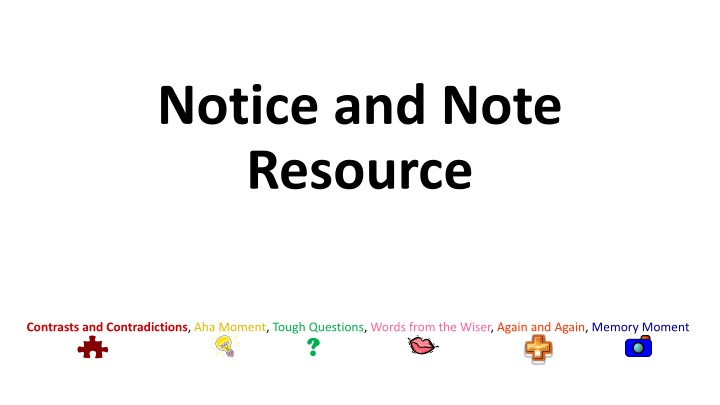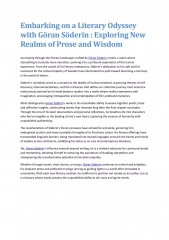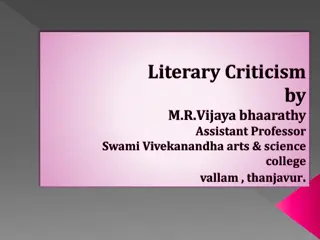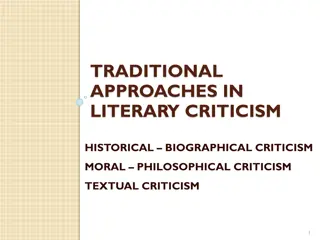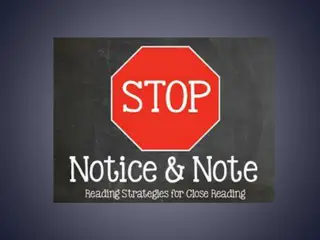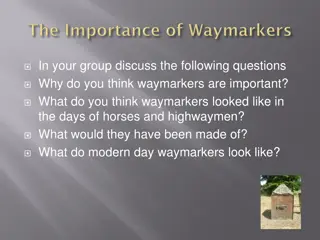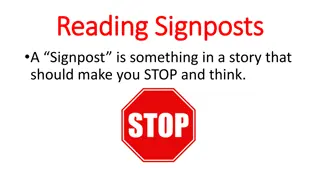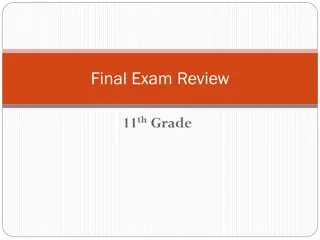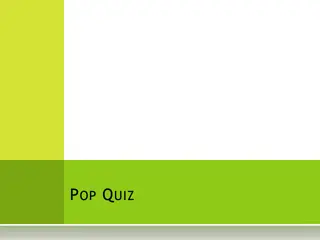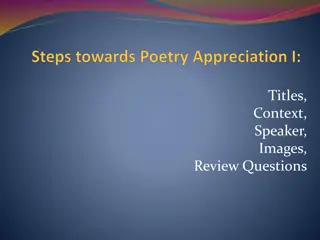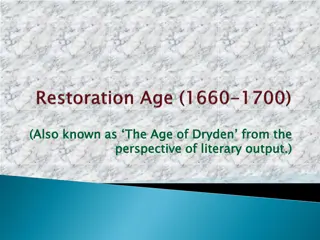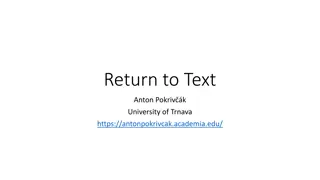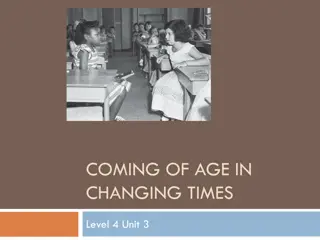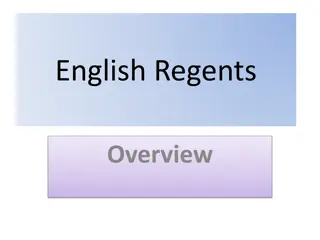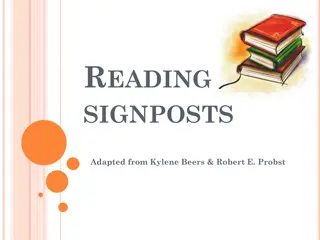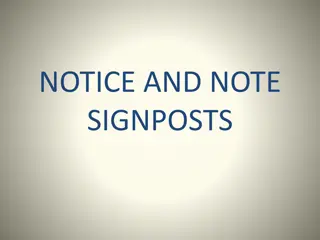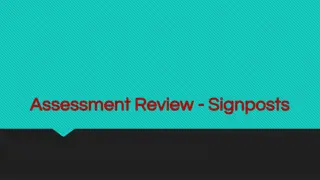Literary Signposts for Deeper Insights
Uncover hidden depths in fiction with literary signposts like Contrasts and Contradictions, Aha Moments, Tough Questions, Words from the Wiser, and more. Understand characters, conflicts, and themes through critical reflections while exploring the significance of repeated elements. Enhance your reading experience by noticing these key indicators.
Download Presentation

Please find below an Image/Link to download the presentation.
The content on the website is provided AS IS for your information and personal use only. It may not be sold, licensed, or shared on other websites without obtaining consent from the author.If you encounter any issues during the download, it is possible that the publisher has removed the file from their server.
You are allowed to download the files provided on this website for personal or commercial use, subject to the condition that they are used lawfully. All files are the property of their respective owners.
The content on the website is provided AS IS for your information and personal use only. It may not be sold, licensed, or shared on other websites without obtaining consent from the author.
E N D
Presentation Transcript
Notice and Note Resource Contrasts and Contradictions, Aha Moment, Tough Questions, Words from the Wiser, Again and Again, Memory Moment ?
Signposts Signposts These markers can help guide you along the path to understanding as you read fiction. When you notice them, and take note! These are in order based on the signposts you will see more often to the ones you will see less often.
Stop and Notice and Note Contrasts & Contradictions When you re reading and a character says or does something that s opposite (contradicts) what he has been saying or doing all along, You should stop and ask yourself: Why is the character doing that? The answers could help you make a prediction or make an inference about the plot and conflict.
Stop and Notice and Note Tough Questions When you re reading and the character asks himself a really difficult question, You should stop and ask yourself: What does this question make me wonder about? The answers will tell about the conflict and might give you ideas about what will happen later in the story.
Stop and Notice and Note When you re reading and suddenly a character realizes, understands, or finally figures something out, You should stop and ask yourself: How might this change things? If the character figured out a problem, you probably just learned something about the conflict. If the character understood a life lesson, you probably just learned the theme.
Stop and Notice and Note When you re reading and a character (who s probably older and lots wiser) takes the main character aside and gives serious advice, Words from the Wiser You should stop and ask yourself: What s the life lesson, and how might it affect the character? Whatever the lesson is, you ve probably found a theme for the story.
Stop and Notice and Note When you re reading and you notice a word, phrase, object, or situation mentioned over and over, Again and Again You should stop and ask yourself: Why does this keep showing up again and again? The answers will tell you about the theme and conflict, or they might foreshadow what will happen later.
Stop and Notice and Note Memory Moment When you re reading and the author interrupts the action to tell you a memory, You should stop and ask yourself: Why might this memory be important? The answers will tell you about the theme, conflict, or might foreshadow what will happen later in the story.
